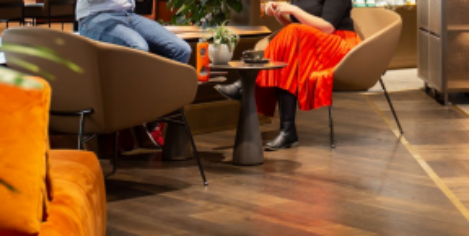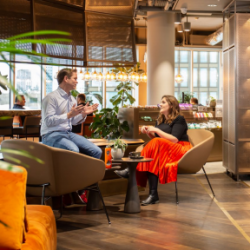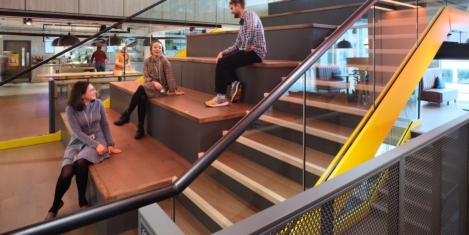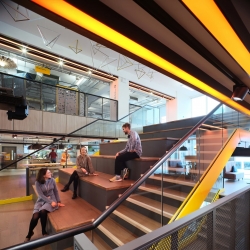To provide the best experiences, we use technologies like cookies to store and/or access device information. Consenting to these technologies will allow us to process data such as browsing behaviour or unique IDs on this site. Not consenting or withdrawing consent, may adversely affect certain features and functions.
The technical storage or access is strictly necessary for the legitimate purpose of enabling the use of a specific service explicitly requested by the subscriber or user, or for the sole purpose of carrying out the transmission of a communication over an electronic communications network.
The technical storage or access is necessary for the legitimate purpose of storing preferences that are not requested by the subscriber or user.
The technical storage or access that is used exclusively for statistical purposes.
The technical storage or access that is used exclusively for anonymous statistical purposes. Without a subpoena, voluntary compliance on the part of your Internet Service Provider, or additional records from a third party, information stored or retrieved for this purpose alone cannot usually be used to identify you.
The technical storage or access is required to create user profiles to send advertising, or to track the user on a website or across several websites for similar marketing purposes.
 Businesses participating in ‘Bring Your Dog To Work Day’ on Friday 24 June should see it as an opportunity to open an honest and frank dialogue with their workforce about the benefits, challenges and feasibility of bringing dogs to work, says Dogs Trust. Britain saw a rise in dog ownership during the pandemic, particularly among younger people, aged 25-34. As more people return to their place of work, there are concerns among dog owners about what this means for their dogs, who have become used to them working from home over the last couple of years. (more…)
Businesses participating in ‘Bring Your Dog To Work Day’ on Friday 24 June should see it as an opportunity to open an honest and frank dialogue with their workforce about the benefits, challenges and feasibility of bringing dogs to work, says Dogs Trust. Britain saw a rise in dog ownership during the pandemic, particularly among younger people, aged 25-34. As more people return to their place of work, there are concerns among dog owners about what this means for their dogs, who have become used to them working from home over the last couple of years. (more…)

















 At the 1983 International Design Conference in Aspen, Steve Jobs delivered a speech addressing the theme of the conference; The Future Isn’t What It Used to Be. In it he set out his thoughts on new technology, intuitive design, personal computing as well as the need for a constantly evolving idea of what the future will look like, including the future of work.
At the 1983 International Design Conference in Aspen, Steve Jobs delivered a speech addressing the theme of the conference; The Future Isn’t What It Used to Be. In it he set out his thoughts on new technology, intuitive design, personal computing as well as the need for a constantly evolving idea of what the future will look like, including the future of work. 




 Six workplaces across the North of England and Northern Ireland have been recognised at the annual British Council for Offices (BCO) Regional Awards today. The Northern BCO Awards dinner returned in-person to the Kimpton Clocktower in Manchester, recognising the North’s highest quality developments and setting the standard for excellence in the office sector across the UK.
Six workplaces across the North of England and Northern Ireland have been recognised at the annual British Council for Offices (BCO) Regional Awards today. The Northern BCO Awards dinner returned in-person to the Kimpton Clocktower in Manchester, recognising the North’s highest quality developments and setting the standard for excellence in the office sector across the UK. 







June 14, 2022
Loneliness might hold back hybrid working productivity gains
by Gosia Bowling • Comment, Flexible working, Wellbeing